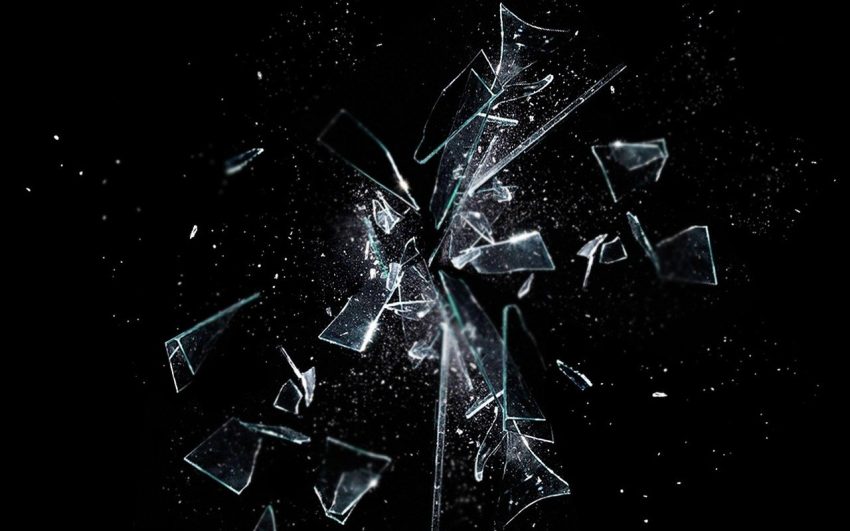Black Mirror

Black Mirror is an ongoing sci-fi anthology series created by Charlie Brooker in 2011. Each episode is a standalone story introducing us to new characters and new situations. Sometimes, however, earlier episodes are subtly or explicitly referenced in newer ones, which implies they exist within the same universe.
The series is set in the near future, although looking at the way the characters dress and act, it appears that the action takes place in present day if not for the futuristic gadgets at the centre of most episodes. This is why we describe Black Mirror as uncanny – it inhabits a vaguely familiar, yet distant universe.
Moreover, because each episode is a standalone story, the plot quickly unravels and becomes an intense exploration of a dystopian future, that is, however, only reflecting on our current societal trends.
What is the Black Mirror in Black Mirror
The intro for Black Mirror shows a literal black mirror getting cracked. This mirror can be interpreted in two ways, which more or less describe it very accurately:
- The black mirror stands for a computer/TV/telephone screen: Most episodes are partially told through digital screens; the characters in “Nosedive” rate each other on their phones, while “Fifteen Million Merits” has its heroes living in boxes fitted in with screens where they consume media all the time. This interpretation also has to do with spectacle. Each episode, critics argue, is a standalone spectacle (usually playing out on screen) to be enjoyed by the masses (both by the intra- and extra-diegetic spectators).
- The black mirror is a metaphorical ‘black’ mirror: This comes from the interpretation that the show reflects our own society. The show puts up a mirror to society, but it reflects the bleakest aspects of it, hence why it’s black. Returning to “Nosedive”, social media has already become an integral part of our lives to the point where we base our success and popularity on how well we are received online.
Thintelligence
The episodes usually involve a modern piece of technology that is shown to destroy those who use it. The device first appears to be harmless and it’s (often) created in good faith. Michael Crichton sees these types of creations as an example for ‘thintelligence’.
Thintelligence can be simply described as a mode of narrow thinking focused on current goals that ignores the larger picture, especially the consequence of one’s actions. Crichton invented this concept for his award-winning Jurassic Park series where dinosaurs are resurrected only to wreak havoc on the visitors of the park. The same can be seen in many Black Mirror episodes.
In “The Entire History of You”, characters use a “grain” that records everything they do, which allows them to relive their experiences. Liam finds out more he bargained for by forcing his wife to show him her memories. This overwhelming experience leads Liam to remove his grain with a razor.
Modern Cautionary Tales
Although this technology seems rather complex and distant, what happened to Liam happens to people every day now, because of technology. If you secretly look through the phone of your significant other, you might find unsavoury things about them. We record our whole lives on our phones after all.
This is why Black Mirror is often described as a collection of cautionary tales for our times. The devices are futuristic, but they tend to have something in common with things we already own. Charlie Brooker is thus continuing on the tradition of ‘thintelligence’, first coined by Crichton, which makes us contemplate the ethics of technology today and in the future.
Brooker and his talented team of creators, blur the lines of sci-fi and realism often through hyperbole. Take “Hated in the Nation” as an example. In the episode, people are mysteriously killed by bee-drones, which are revealed to be sent to those who gather the most mentions on twitter under the hashtag “deathto”. We already experience a similar phenomenon in the face of cancel culture. It first started with celebrities whose past or present mistakes were exposed in social media, which led to a concentrated efforts by media users to “cancel” them, resulting in the death of many careers.
Cancel culture now extends to virtually anyone on the internet, whereas even children are not spared, and sadly many of its victims receive death threats, which isn’t far off “Hated in the Nation”.
Black Mirror Comes to Life
Black Mirror tends to exaggerate our current situation to warn us how things can progressively worsen aka art imitates life. However, there is one chilling example of life imitating life, that should serve as a final warning for everyone.
Suzhou became the first Chinese city to implement a social credit system, which is as close as humanly possible to the episode “Nosedive” and everyone instantly noticed it. The city rolled out an application called ‘Civility Code’, which aims to monitor the behaviour of Suzhou’s citizens.
Each person starts with 1,000 points, which can increase or decrease based on social interactions that are viewed as either negative or positive. The app is controlled by the local authorities who claim participation is voluntary, although we doubt it would stay that way if Black Mirror taught us anything.
Another episode that might soon come to life is “Be Right Back” where a grieving woman used a company to create an AI version of her dead boyfriend by using his digital traces. ETER9 is trying to do the same right now. Marketing itself as a social network where an AI counterpart converses with you to learn more about you, which is meant to result in an eternal digital version of you.
We believe that we will be able to give you many more examples of Black Mirror creations coming to life in the future, which is honestly terrifying.